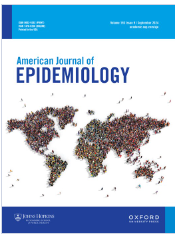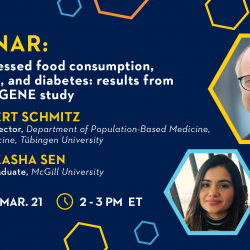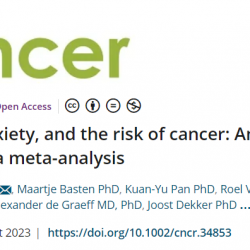World Mental Health Day
Join us in recognizing World Mental Health Day. CanPath is Canada’s largest population health study and includes approximately 34,000 participants who were diagnosed with depression and more than 27,000 participants with anxiety. Data and biosamples provided by our participants are being used in critical mental health research. Alexandra Del Favero is a PhD student in the Department of Earth and Environmental Studies at Dalhousie University. Along with her supervisor, Dr. Kelvin Fong and using questionnaire data, toenail and saliva samples from Atlantic PATH, Alex is examining the effect of environmental factors on mental health in Nova Scotia. CanPath is one of 23 cohorts with 2.8 million participants included in the COVID Global Mental Health Consortium (CGMHC). Led by Dr. Jordan Smoller (Harvard University, Massachusetts General Hospital), this work is investigating pandemic-related mental health outcomes using individual-level harmonized longitudinal data. Data collected from CanPath COVID-19 questionnaires completed by participants from all regional cohorts are being used. Atlantic PATH are proud to lead this work on behalf of CanPath. Dr. Ashlyn Swift-Gallant (Department of Psychology, Memorial University) used data from Atlantic PATH to conduct research that found ovarian hormones contribute to the sex disparity in post-traumatic stress disorder. Drs. Gabriela Ilie, Rob Rutledge and Ellen Sweeney (Dalhousie University and Nova Scotia Health) used data from Atlantic PATH to investigate the association between prostate cancer diagnosis and mental health outcomes. Their work found increased rates of anxiety and depression among males with a history of prostate cancer; higher odds of depression among prostate cancer survivors who were treated with surgery; and higher rates of depression among prostate cancer survivors with a low household income compared to other forms of cancer and a high household income. These findings highlight the importance of a multidisciplinary effort to prioritize and deliver comprehensive mental health support to prostate cancer survivors. This work has helped to inform the groundbreaking Prostate Cancer Patient Empowerment Program (PC-PEP) and CancerPEP led by Drs. Ilie and Rutledge that have been implemented around the world. Atlantic PATH is one of the 18 cohort studies in the PSYchosocial factors and CAncer (PSY-CA) Consortium. Led by Dr. Joost Dekker from the Amsterdam University Medical Centre, this study investigated whether psychosocial factors, such as depression can predict the incidence of cancer. Multiple publications that include Atlantic PATH data can be found here. To find out about the most up-to-date mental health research and learn about data access, please visit our website.








